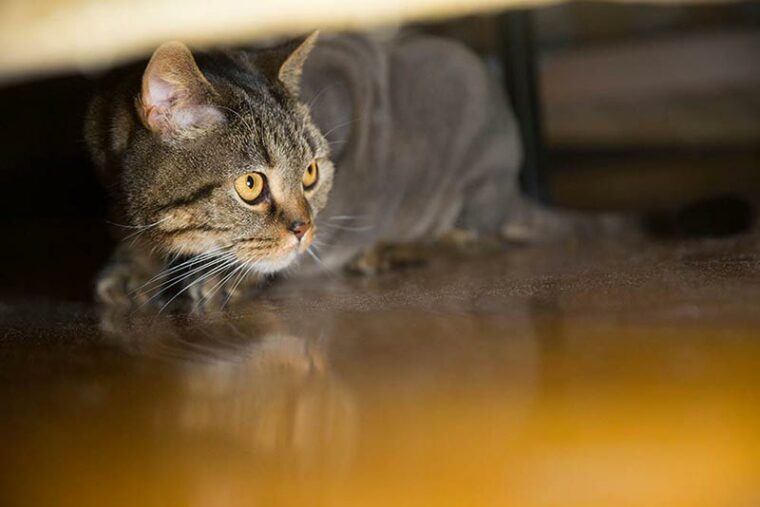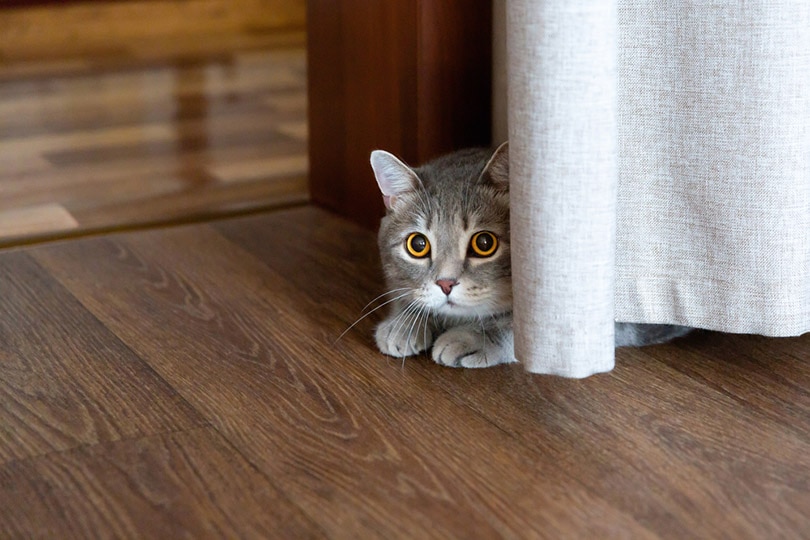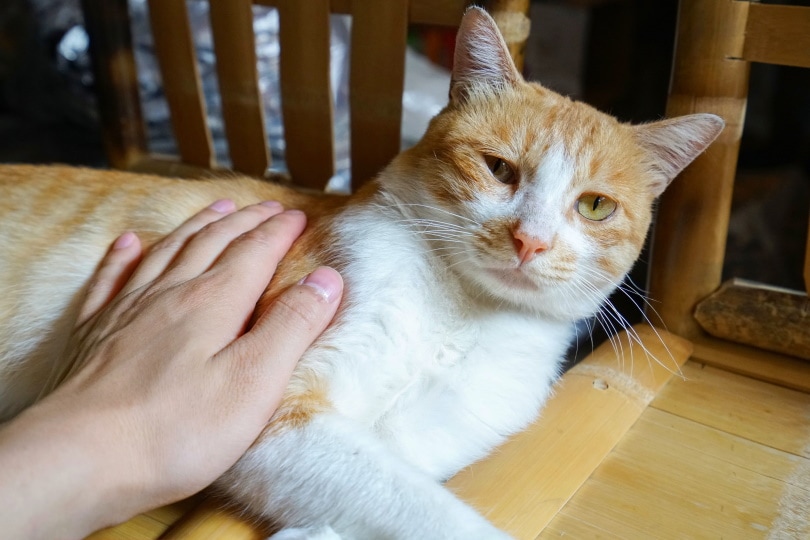
Note: Home remedies are not an alternative to professional medical advice. If your pet has a serious issue, please consult your vet immediately.
All cats will suffer from some form of stress and anxiety at some point in their lives. Whether it’s short-lived because the stressful event is going to the vet’s or traveling or it’s something that is a daily part of their lives, it’s always difficult for us to see our cats suffer.
If you are trying to make an event less stressful for your cat or want to make your cat’s daily life a little easier but don’t know how, we go over your options. We have eight methods and products that you can try with your cat that are proven to be safe and effective.
We hope that you can find something that helps make your cat a little calmer in the face of anxiety-driven events, without relying on medication.
The 8 Remedies for Reducing Anxiety in Cats
1. Catnip
The idea here is to tire them out. This won’t work for cats that tend to have anxiety issues over unexpected events, but if you are leaving for the vet’s in 15 or 20 minutes, try giving your cat a bit of catnip.
The effect of catnip tends to last between 5 and 15 minutes, which is when your cat will expend a ton of energy and might zone out for a while afterward. This means your cat might feel calmer and more tired during the stressful event.
2. Silver Vine and Valerian
This study shows that the silver vine plant is just as effective as catnip. It is a vine native to Japan, Korea, China, and eastern Russia. If you haven’t heard of it before, cats have a similar reaction to silver vine as they do to catnip.
The effects of silver vine tend to last longer than catnip, so you’ll need to give it about 30 minutes before the stressful event. Some cats get quite sleepy after the effects wear off, which might make it a relaxing remedy.
Valerian is another natural herb that can have a similar effect, but the study found that only 50% of cats responded to valerian compared to the 80% of cats that react to catnip and silver vine.

3. Thundershirt
The Thundershirt is a weighted vest that provides gentle pressure on your cat’s body, which can help calm an anxious cat. It’s designed to prevent anxiety during stressful events, such as fireworks, thunderstorms, or the dreaded trip to the vet. Like catnip and silver vine, 80% of cats respond well to this product.
4. Feliway
Feliway is a plug-in diffuser that releases cat-calming pheromones, the chemicals that your cat releases when rubbing their adorable face all over your house. These pheromones are for communication, which makes them feel calmer and more comfortable.
Feliway is a synthetic version of this unique pheromone, so when plugged in, it can ease your cat’s anxiety, and luckily, you won’t smell a thing.
Feliway also has calming wipes.
5. Calming Treats/Food
There are calming treats and calming cat food that can help your anxious cat. The treats are usually given once a day and are meant to last all day. They don’t act as sedatives but are meant to make your cat feel calmer and less anxious.
The food is designed to promote relaxation and is formulated to be complete and balanced, therefore it can be fed as the main diet. The ingredients used in the chews and food are usually hydrolyzed milk protein, L-tryptophan, vitamin B, and L-theanine, molecules that have been proven to be safe and effective in cats.
6. Music for Cats
This calming music speaker for cats plays 90 minutes of music designed to relax your stressed-out kitty. It’s wireless and can be placed near the area where your cat tends to hang out and sleep, or it can even be put in the car. It was specially made by a sound behaviorist, with specific frequencies for cats.
When plugged in, it can play all day and all night continuously (if it works well and your cat seems to need it).

7. Acting Calm and Relaxed
Acting normal and feeling relaxed is the best way to be around your cat when they are feeling anxious. Cats can sense our tension and it can fuel their anxiety. If they are not trying to hide or become “invisible,” you can try to engage with them in their favorite way, whether it’s by giving them gentle strokes or playing their preferred game.
Cats have individual preferences when it comes to interaction, and understanding what they enjoy the most can help create a calming environment. Remember to observe their body language and responses to ensure that you’re meeting their specific needs and providing a soothing experience.
8. Letting Them Hide If That’s What They Need
Cats are naturally cautious animals and tend to seek shelter in secure places when they feel threatened or stressed. Letting them hide and respecting their need to retreat to a quiet place makes them feel protected and safe. They will feel like they have more control over their environment, which will help reduce their anxiety.

Other Steps
If you can figure out the specific source of your cat’s anxiety, you can work with your vet or a cat behaviorist, as they are professionals who know how to interpret your cat’s behavior.
Also, try spending extra time playing and bonding with your cat, which will make them feel more relaxed and attached to you. For example, if your cat loves feather wands, use one while playing with your cat. This kind of bonding can make your cat feel more secure overall.

Conclusion
Sometimes these remedies might take a bit of time to truly work. Not every product will work for every cat. You might need to try several different items and methods until you find the right one. In some cases, you might need to use multiple methods for the best results.
However, if your cat’s anxiety seems to be affecting their quality of life and nothing seems to be working, you should take your cat to the vet. Their vet or cat behaviorist can help you identify the triggers and develop a plan to eliminate or keep your cat’s stress levels to a minimum. Your cat’s health and happiness are the most important things.
Featured Image Credit: ivSky, Shutterstock








